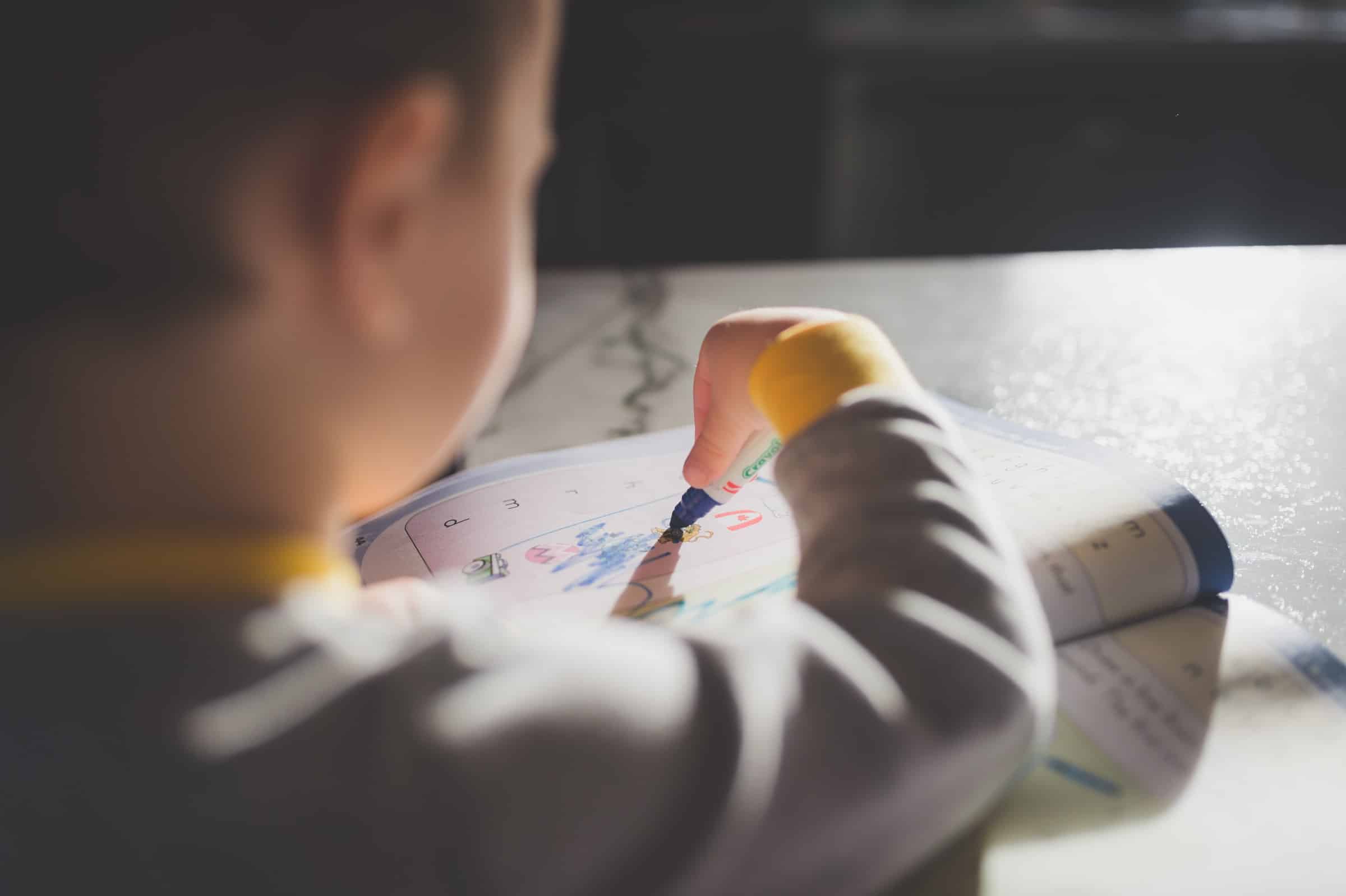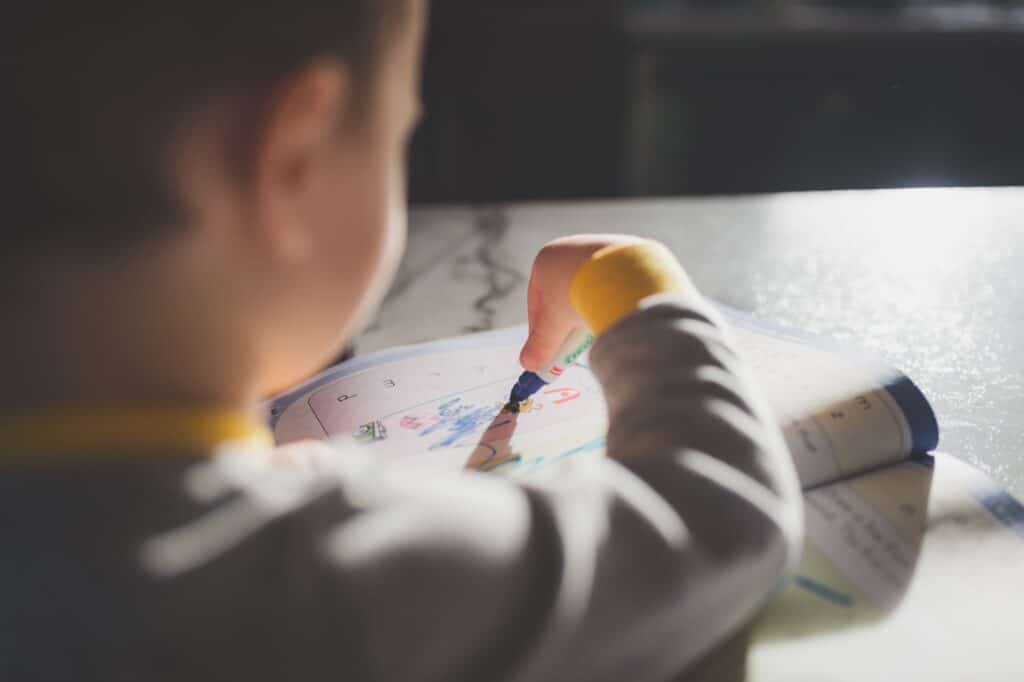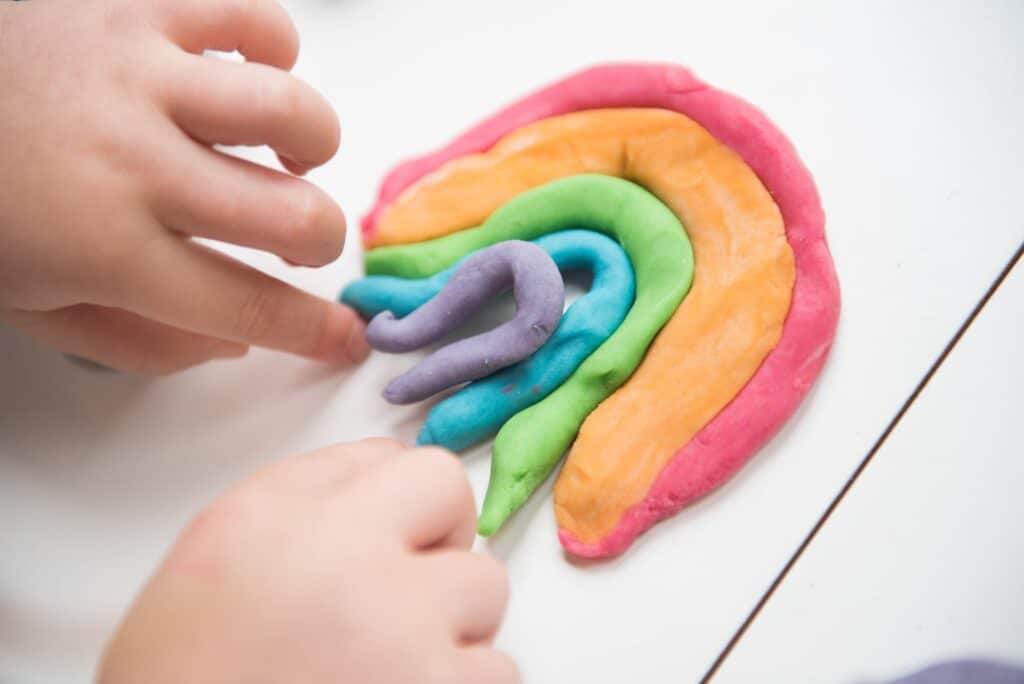We might not give much thought to the dexterity and fine motor control that allows us to use a pencil – but these are essential skills we all learned in early age. From brushing our teeth to typing on our laptops, we use our fine motor skills each day for almost every purpose imaginable.
Fine motor skills in child development is critical to overall wellbeing. When a child practises their fine motor skills, they’re creating connections between their eyes and the small muscles in their fingers, hands and wrists. Despite their small size, these muscles play a powerful role in our childhood development as they enable a child to play, learn and grow in independence. A child with poor fine motor skills will find it comparatively more difficult to practise self-care activities and interact with their surroundings when playing.
What are fine motor skills?
Fine motor skills describe the ability to coordinate and control the smaller muscles within our hands, fingers and wrists. Fine motor skills are an integral part of everyday life as they allow us to manipulate small objects, write, pinch, push and point.
Why are fine motor skills important in a child’s development?
Whether it’s opening lunch boxes or playing with Lego, learning how to engage fine motor skills is an important part of child development. By developing their fine motor skills, children are gaining the ability to perform everyday tasks that will ultimately boost their self-esteem and independence. Strong fine motor skills are also invaluable when it comes to teaching children how to write.
But the important nature of fine motor skills doesn’t stop there. Research highlights a close relationship between child fine motor development and cognitive and language development.
Ways to improve your child’s fine motor skills
Developing fine motor skills is so important at an early age, as they allow a child to work towards more advanced skills such as drawing and writing.
Wondering how to improve your child’s fine motor skills? The great news is that many of the everyday activities your child experiences are contributing to robust fine child motor skills. Here are some fun activities to encourage physical activity that engages fine motor skills.
1. Teaching your child to feed themself
When it comes to supporting early childhood nutrition, self-feeding is a particularly useful activity that incorporates fine motor skills. Between the ages of 9 and 12 months, babies will typically show some interest in self-feeding. This interest normally manifests in deliberate actions the baby takes during mealtime, such as raking their hand through food or attempting to bring food up to their mouth. Providing your baby with food that’s easy to grab (such as soft cooked carrots or cut up pieces of fruit) is a great way to encourage self-feeding.
Another way to support fine motor skills and self-feeding is to incorporate two spoons during mealtime – one for you to feed your baby and another for you baby to hold. This can help strengthen their hand muscles and familiarise them with cutlery.
2. Helping out in the kitchen
There are so many kitchen activities that can help to develop fine motor skills, including stirring, shaking, measuring ingredients and chopping. Even setting the table can help to develop these skills and strengths as little hands grasp cups, plates and cutlery.
3. Getting dressed
One of the very first activities that children complete in the morning is great for developing detailed hand-to-eye coordination. Actions such as fastening Velcro tabs and doing up buckles, zippers and buttons all help to build fine motor skills.
4. Potty training
You don’t necessarily think of fine motor skills as being essential for toileting. But potty training and toileting involve numerous fine motor skills, from unzipping and pulling down pants, to retrieving toilet paper and wiping. All of these activities support hand strength and bilateral coordination.
5. Helping out with gardening
Planting seeds, nurturing seedlings and harvesting herbs and vegetables all require a gentle and detailed touch. These activities let little ones develop fine motor skills while they learn about sustainability and the natural environment. Gardening also provides a perfect opportunity for children to refine their pincer grip, which will be incredibly beneficial when they start learning to write.
6. Sand play
In addition to encouraging creativity, sand play is a fantastic opportunity for children to practice their eye-hand coordination and strengthen their smaller hand muscles. Shovels, rakes and buckets are all fun toys that can assist with child fine motor development.
That’s not to say that children need toys to make the most out of their sand play – interacting directly with the sand through scooping and pouring also actively refines their fine motor skills.
7. Playing with smaller toys
The importance of play in improving fine motor skills can’t be overstated. Smaller toys such as Lego or building blocks can provide plenty of fun opportunities to focus on the smaller finger and hand muscles, including holding toys, putting different elements together, pulling them apart and balancing separate components.
8. Drawing, colouring and painting
Drawing, painting with fingers or brushes, folding craft paper, playing with playdough and cutting paper with child-safe scissors – these activities all help little minds and hands to form important connections and dexterity, for robust fine motor skills in child development.
9. Musical instruments
Musical instruments and toys are a fun interactive way for children to practise holding and manipulating items. Playing instruments also fosters finger strength and independence. That’s not to say you have to invest in a grand piano to gain the benefits of musical instruments in child development – maracas, a triangle or any other object that you can safely bang, scratch, shake or press to make a sound will do perfectly fine.
10. Games involving manipulative play
Manipulative play describes games and activities where children move, turn and assemble items with their hands. Construction play, arts and crafts, pushing toys and stacking toys enable children to practice reaching, grasping and releasing – three key aspects of fine motor skills.
Fine motor development is essential to a child’s independence and sense of self
As well as fine motor skills, it’s also vital to consider child development in gross motor skills, which involve the larger muscles such as arms, legs and core muscles. We understand just how important these diverse capabilities are, which is why at Aurrum Kids we’ve developed safe and healthy learning environments that encourage free and active movement. Our age-tailored programs incorporate fun and function-building activities that help each child refine these two very important skills.
We’d love for your family to explore our Mornington, Ballarat or Penrith centres and meet our early learning educators. Contact us today to set up the best time to suit you.


